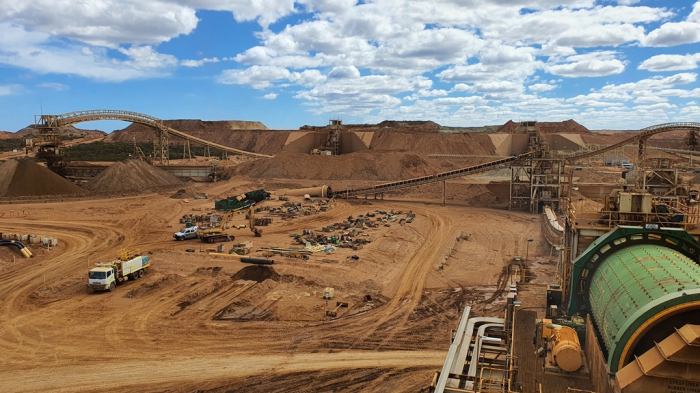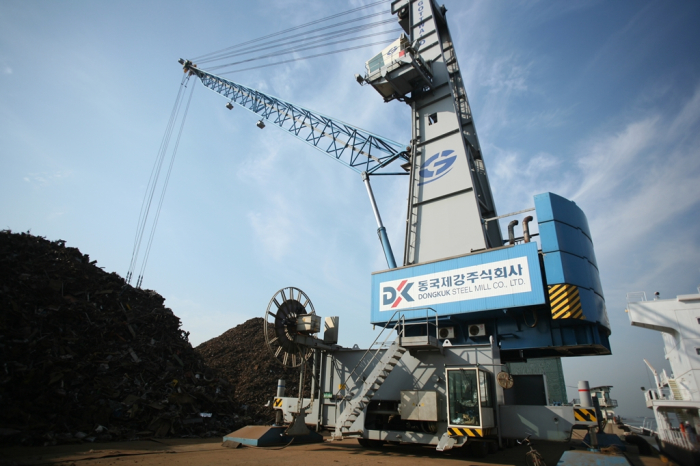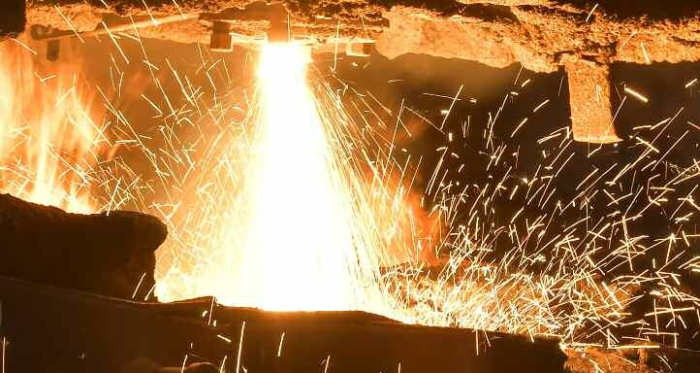Raw materials
Volatile raw material prices put Korea on alert for procurement
Companies worldwide are battling it out for raw materials in pursuit of post-pandemic growth
By Aug 25, 2021 (Gmt+09:00)
3
Min read
Most Read
LG Chem to sell water filter business to Glenwood PE for $692 million


Kyobo Life poised to buy Japan’s SBI Group-owned savings bank


KT&G eyes overseas M&A after rejecting activist fund's offer


StockX in merger talks with Naver’s online reseller Kream


Mirae Asset to be named Korea Post’s core real estate fund operator



Volatile price changes in iron ore and non-ferrous metals such as lithium and nickel are keeping South Korean companies on their toes for procurement as countries around the globe are in a war to secure raw materials in their push for post-pandemic growth.
The Korean economy – Asia’s fourth-largest – heavily relies on imports for its raw material needs and the volatile boom-bust cycle of industrial metals could deal a blow to its major exporters, including automakers and battery manufacturers, analysts say.
According to trade ministry data on Wednesday, the benchmark Chinese spot price for iron ore was quoted at $146.13 per metric ton as of Aug. 24, down nearly 40% in just a month.
The benchmark price fell to a low of $130.2 a ton last week, but bounced back earlier this week on the Chinese government’s vow to provide support for its slowing economy.
The sudden sharp drop in the commodity price was fueled by China’s steel production cut as it seeks to slash its carbon emissions.
Instead of using iron ore in steelmaking, China is encouraging its steelmakers to use scrap steel, as melting scrap at furnaces generates much lower quantities of greenhouse gases.

NEW NORMAL IN ERA OF CARBON NEUTRALITY
China’s heavy imports of steel scrap and the global push for carbon neutrality, in turn, are causing a surge in prices of scrap and non-ferrous metals such aluminum, lithium and nickel, widely used to make batteries.
In Korea, the scrap steel price is currently hovering around 600,000 won ($514) a ton, up 60% from the start of the year and more than double the price a year earlier.
The price of lithium carbonate, used to make battery materials, was quoted at 102 yuan per kilogram in China, up 27.5% in a month. Prices of nickel and aluminum have also risen 9% and 30%, respectively, from January.
“The price decoupling between iron ore and scrap steel is exceptional in the steel sector. The recent volatility in raw material prices may not be part of a short-term cycle. It may signal a paradigm shift toward the new normal in an era of carbon neutrality,” said a steel industry official.
The worsening scrap supply-demand imbalance created by China’s massive imports is particularly hurting smaller Korean companies that use the metal to manufacture industrial products such as diesel engine blocks and cylinder heads.
Analysts said bigger domestic steelmakers such as POSCO and Hyundai Steel Co., which import about 20% of their scrap steel needs, should also diversify their import sources to meet growing demand.
POSCO plans to increase the use of steel scrap in steelmaking to 20% of total output this year from 15% earlier, and further raise the ratio to 30% by 2025.

BATTERY MAKERS
Battery makers are also aggressive in their efforts to secure raw materials.
LG Energy Solution Ltd., Korea’s largest battery maker, said last week it signed a long-term contract with Australian Mines Ltd. to stably secure nickel and cobalt, key materials for batteries.
In May, POSCO Chemical Co. signed a $240 million deal to acquire a 30% stake in the Ravensthorpe Nickel Operation in Australia to procure mixed nickel-cobalt hydroxide precipitate (MHP).
The Korean firms’ efforts to diversify sources of raw material imports come as the country’s state-run corporations are moving to sell their overseas mines to mitigate snowballing operating losses.
Korea Resources Corp. (KORES), which owns a 33% stake in the Ambatovy mine in Madagascar off the east coast of Africa, is seeking to sell its stake in the mine, one of the world’s largest nickel and cobalt projects.
“Many companies around the world are in a war for raw materials. The Korean government should also play its role and provide support for the domestic private sector’s efforts,” said an official at the Federation of Korean Industries.
Write to Jung-hwan Hwang and Kyung-Min Kang at jung@hankyung.com
In-Soo Nam edited this article.
More to Read
-
 Shipping & ShipbuildingKorean shipbuilders find relief in falling iron ore prices, rise in new orders
Shipping & ShipbuildingKorean shipbuilders find relief in falling iron ore prices, rise in new ordersAug 23, 2021 (Gmt+09:00)
2 Min read -
 Battery materialsPOSCO to build $200 mn nickel refining plant to ramp up battery materials
Battery materialsPOSCO to build $200 mn nickel refining plant to ramp up battery materialsJul 28, 2021 (Gmt+09:00)
1 Min read
Comment 0
LOG IN


